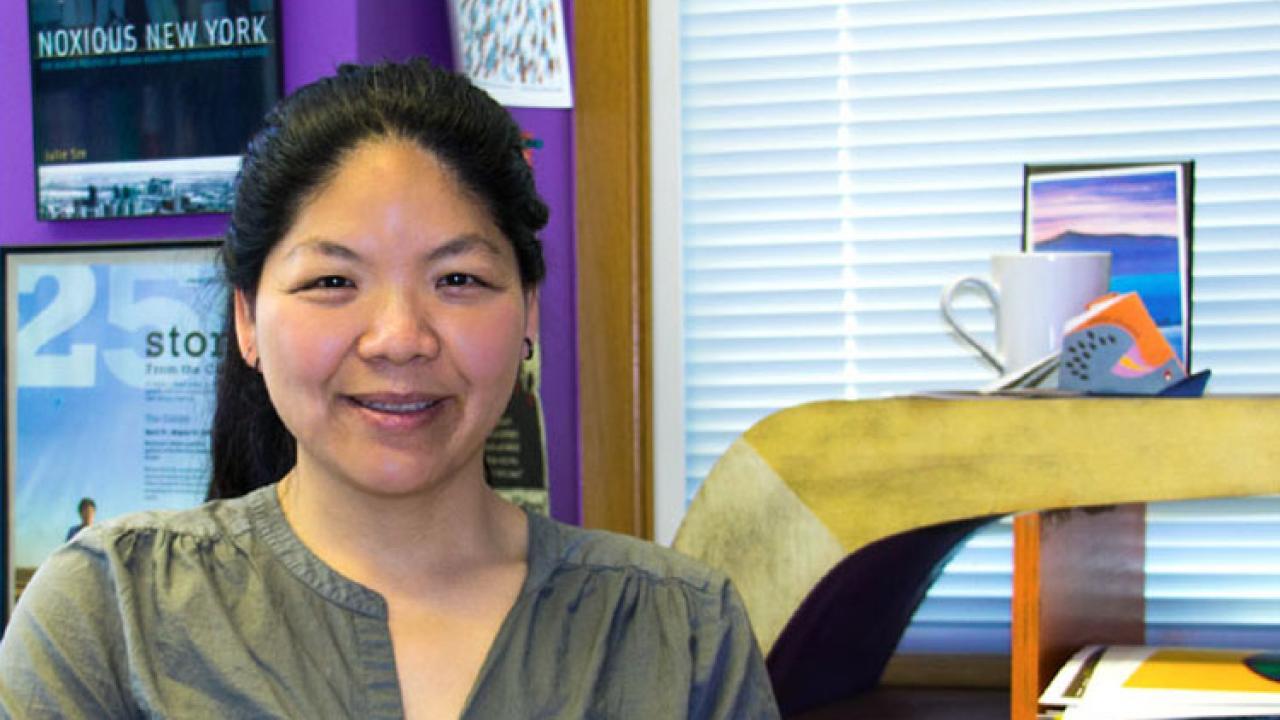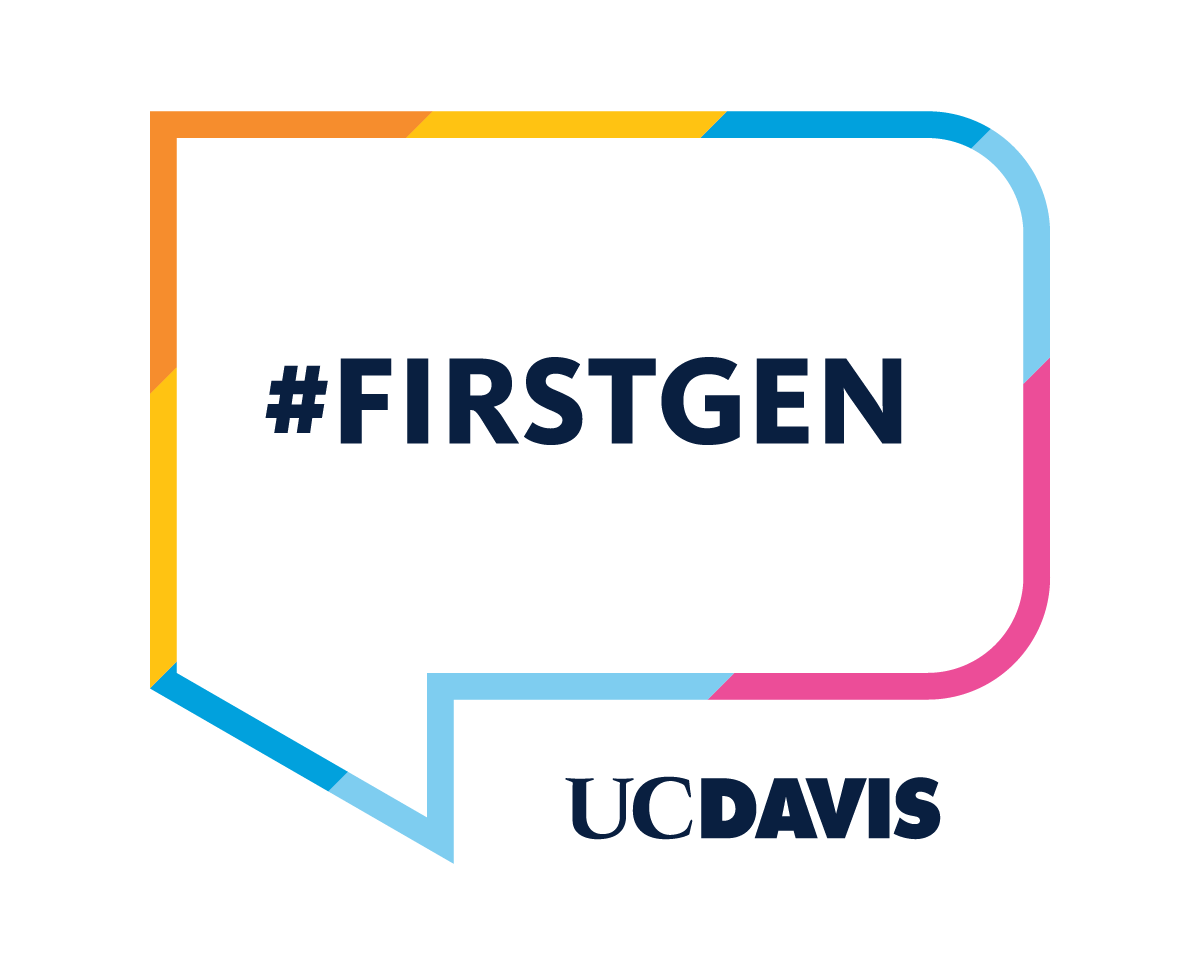
Immigrant Families, American Dreams - Julie Sze
JULIE SZE grew up in New York City’s Chinatown, where her father worked in the restaurant industry after emigrating from China. She attended a “striving immigrant school” oriented toward success in math and science, and was expected to go to college in preparation for a professional career. “This is very typical for a working class Asian immigrant family– it’s tied to the narrative of the American dream.”
But what she loved was reading books, and at Berkeley, she majored in English. “I had no idea I was studying with professors who were well known, who were top in their field,” she says. And then she took a big GE ethnic studies lecture course with Professor Ron Takaki, and “my mind was blown.” (Takaki himself was a first-generation college student who went on to have a foundational role in ethnic studies at Berkeley.)
That class sparked Sze’s participation in campus activism, which led to an internship, which led in turn to her first job in environmental justice – a career which ultimately brought her back to the academic pathway. “When we asked why they were putting yet another polluting factory in Harlem, the answer had to do with zoning.” Sze wanted to know more, and began researching the racial history of zoning practices in New York, which took her to graduate study at NYU.
“I didn’t go to graduate school with the goal of becoming a professor. I had a question that fascinated me, and I wanted to research it deeply.” And that question, she says, “connects back to my family – it has to do with the history of migration. My parents left China because of the Communist regime, and New York seemed like the most open place to go.”
Conflicting American Dreams: Trusting in The Path You Discover
"Parents who didn’t go to college tend to view the university as pre-professional –- It’s a very big conflict. The expectation that students are going to college to become qualified for a particular career hurts students who don’t want to do what’s planned for them.... Students should be allowed to study the thing that attracts them.”
In a way, Sze has come full circle, now teaching the ideology of the American Dream as part of her Introduction to American Studies class. “The idea of the American dream and the university being key to that was true for me, and is true for [students today]. There’s a huge number of students that talk about their parents’ version of the American dream and their own. I think it’s very common – immigrant students come and thinking they’re going to be doctors, but they realize they don’t want to be doctors.”
“Working-class parents, parents who didn’t go to college tend to view the university as pre-professional –It’s a very big conflict. The expectation that students are going to college to become qualified for a particular career hurts students who don’t want to do what’s planned for them. It’s very hard for families to interact around what’s happening at college. Students should be allowed to study the thing that attracts them.”
Sze points out that while own career path appears linear, it wasn’t planned that way. Her career as a professor unfolded as she followed what was important to her. Her advice to first-generation students like herself: “It’s ok to have a little bit of trust in the pathway that you discover.”
